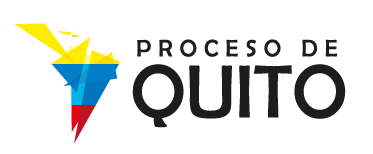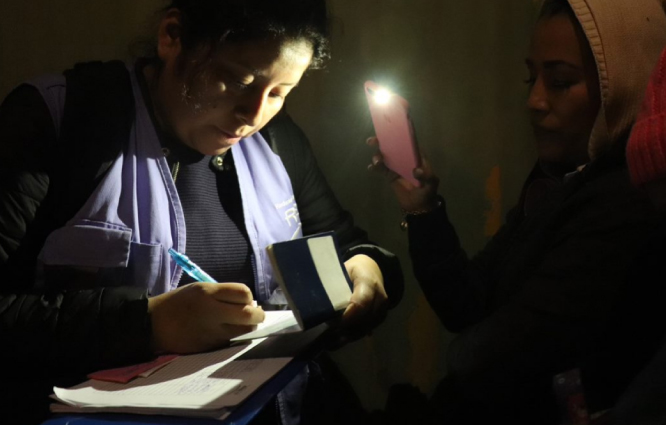Human trafficking
HUMAN TRAFFICKING
In accordance with article 3 of the Protocol to prevent, suppress and punish human trafficking, especially women and children, human trafficking is defined as “the recruitment, transport, transfer, reception or reception of persons, using threat, force or other forms of coercion, abduction, fraud, deception, abuse of power or a situation of vulnerability or the granting or receipt of payments or benefits to obtain the consent of a person who has authority over another, for exploitation purposes."
Past and current experience in other regions of the world shows that, in contexts of large movements of people, the number of cases of human trafficking increases in a greater proportion than in contexts of less massive and prolonged mobility.
This happens because the situations of vulnerability of migrants and refugees generally reach alarming levels in times of crisis. In the case of displaced Venezuelans, the greatest vulnerability is explained by the precariousness of the routes and means of transportation, family fragmentation with the consequent loss of emotional ties and protection along the way, overcrowding in lodging houses, survival sex - already verified by humanitarian workers -, lack of identity / travel documents, migratory and labor irregularity, among many other factors. Official data from IOM Human Mobility Flow Monitoring exercises show persistent and emerging humanitarian risks. For example, from the 4,894 surveys carried out in South America and 4,600 in Central America and the Caribbean in 2019, it has been detected that approximately one in five people worked without receiving the agreed payment, 2% reported having worked against their will and 2% indicated having been kept in some type of confinement by non-state actors.
In addition, between 80% and 90% of those surveyed reported working in the informal economy, an unregulated sector with high exposure to abuse and exploitation. Many of these people travel long distances on foot, with little access to goods and services to meet basic needs and, at the same time, face risks and / or worsening health conditions.
With awareness of the fact that the crime of human trafficking increases in contexts of high migratory flows, the member governments of the Quito Process have not only included the issue on the agenda of their meetings, but have also included it in their Plan of Action. It has been recognized that human trafficking represents a great challenge for immigration policy and management and a serious violation of the human rights of Venezuelans in the region. This issue was addressed from the first meeting of the Process and has remained a constant in the work agendas.
Following up on the recommendation emanating from the Meeting IV of the Quito Process, with technical and financial support from the IOM, a meeting of national authorities on human trafficking was held on October 2nd and 3rd, 2019, in Buenos Aires, Argentina with the participation of 12 member countries of the Quito Process. The delegations prepared a document with technical recommendations to prevent human trafficking, protect its victims, and prosecute the perpetrators. Specifically, the participants recommended the creation of a regional common response mechanism to address the problem.
The results of this meeting were presented at Meeting V of the Quito Process held in Bogotá on November 14tand 15, 2019. The governments participating in this meeting confirmed the need to continue working together in the fight against this crime. Thus, in the Joint Declaration of Meeting V, point 9 states: “To urge the States to continue working on the implementation of a regional coordination mechanism, with technical and financial support from the IOM, for the prevention, protection and assistance, and prosecution of the crime of human trafficking based on the action of the technical recommendations emanating from the regional meeting of national tables against human trafficking iheld in Buenos Aires on October 2 and 3, 2019.”
With the Declaration of Santiago in 2020 it was determined to hold three specific meetings to work on proposals for instances of cooperation among the member states for the prevention, protection and criminalization / prosecution of the crime of human trafficking.
AREAS OF WORK







